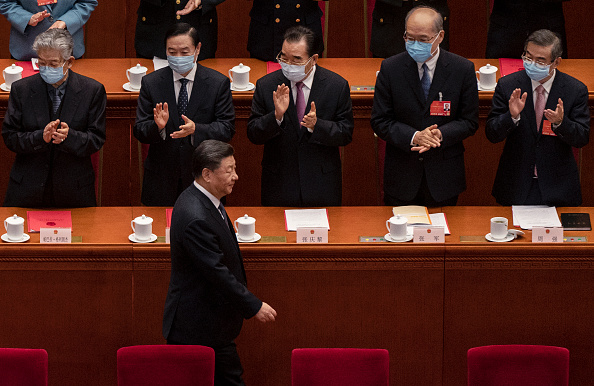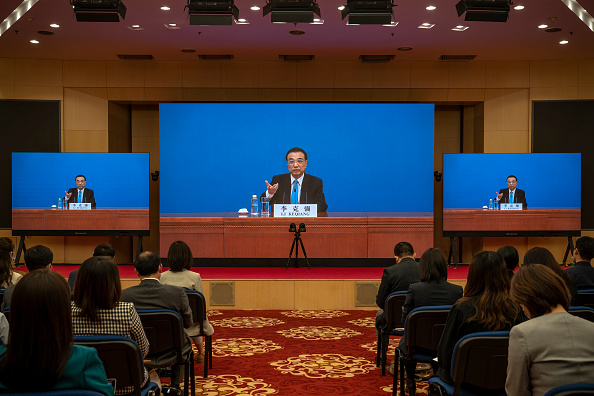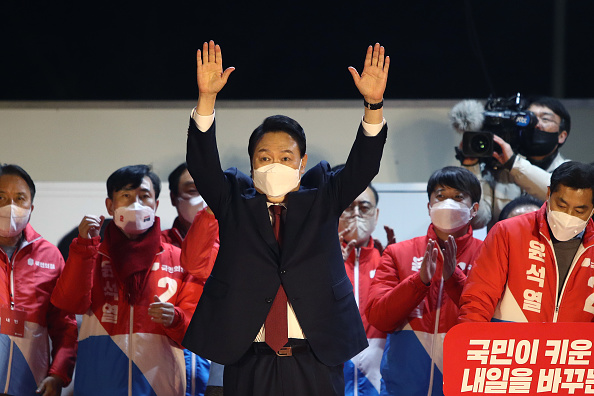
 Political Forecast
Political ForecastWith the conflict in Ukraine looming large in the background, today marked the conclusion of one of China's biggest political events of the year. The Two Sessions meetings, which convened both the National People's Congress and China's top advisory body, the Chinese People's Political Consultative Conference, focused on critical issues facing the country, including the ongoing pandemic, climate and energy goals, security concerns, and the economy.
After two years of following a Zero-COVID policy, the six-day political meeting provided few signals that a sudden shift in China's approach toward the virus was imminent. China is currently facing a surge in COVID cases, and while Chinese Premier Li Keqiang did not directly address the outbreak during his news conference, he did say that national COVID policy would react to the evolving nature of the pandemic and attempt to "ensure normal manufacturing and orderly living."
Li also called for more cooperation between China and the United States to deal with global challenges while properly managing their differences, including on issues related to global economic growth and security. On the issue of Ukraine, Li urged restraint to avoid a humanitarian catastrophe.
"We sincerely hope that the situation will ease and peace will return at an early date," the premier said. He called the situation "indeed disconcerting," while avoiding any critical remarks on the Russian invasion of Ukraine.
Food and energy security also featured prominently in the discussions, as the Russia-Ukraine war exacerbates concern over inflation and supply chain pressures. On energy security, the government announced plans to accelerate the exploration and production of oil, gas, and minerals, and the Ministry of Finance announced funding for new clean energy projects.
China also set an ambitious economic target of 5.5% growth for the year, which is slower than the 8.1 percent rebound in the economy that China reported last year, but higher than many economists believe the country can achieve without big government spending programs. "China's economy will be able to overcome the difficulties and achieve major full-year economic and social goals and tasks, and lay a solid foundation for the development of the country in the future," Li told the media.
Read more in "Only China Can Stop Russia," by Stephen Roach, a Faculty Member at Yale University.
 Fraught Business Ties
Fraught Business TiesPremier Li Keqiang has urged China and the United States to step up communications while managing their differences reasonably and constructively, warning against decoupling between the two countries at a time of fraught relations. However, American businesses in China say U.S.-China relations are back to Trump era tensions, with only 27% of respondents to a new survey by the American Chamber of Commerce in China saying they expect better relations with China.
"What we've seen over the course of the last year is that there's a new reality that has set in, where largely speaking many of the policies and sentiment of the Trump administration remain in place with the Biden administration," Alan Beebe, president, AmCham China, said Tuesday in a call with reporters.
China's strict measures to enact zero-COVID have caused problems for U.S. companies. Three-quarters of American companies have struggled getting foreigners into China, almost all international flights have been canceled, business visas have been curtailed, and overseas arrivals are subject to three-week quarantines.
Meanwhile, President Biden is pushing Congress to pass legislation aimed at boosting U.S. competitiveness with China, including $52 billion toward U.S. chip production to increase the supply of scarce chips. National security officials are also urging an executive order limiting American banks' ability to invest in Chinese technology firms, but the Treasury and Commerce Departments are reportedly pushing back.
And, Gina Raimondo, the U.S. Secretary of Commerce, issued a stern warning Tuesday to Chinese companies that might defy U.S. restrictions against exporting to Russia, saying the United States would cut them off from American equipment and software they need to make their products.
Read more in "The Security Consequences of America's China Focus," by Minxin Pei, a Tom and Margot Pritzker '72 Professor of Government at Claremont McKenna College.
 A New Starting Point
A New Starting PointThe South Korean presidential elections took place this week, resulting in the governing party's candidate, Lee Jae-myung, conceding to his conservative rival, Yoon Suk-yeol, whose victory was largely driven by voter concerns over unemployment, home prices, and economic and gender divides. Yoon will replace President Moon Jae-in, a progressive leader whose single five-year term ends in May, with a platform that calls for a more confrontational stance on North Korea, a stronger alliance with the United States, and a "tough-on-China" message.
While the incoming president doesn't have significant previous experience in foreign policy, analysts expect him to bring a more conservative approach, which could impact South Korea's relations with China and the U.S. and reshape the power balance in East Asia. Many elements of his foreign policy platform, including a move to join the U.S., Australia, and Japan in the Quad and the acquisition of high-tech anti-missile weapons systems, are welcomed by Washington. But those same policies could antagonize Beijing into increasing ongoing sanctions against South Korea, according to foreign policy experts.
But despite concerns about South Korean-China bilateral relations, Chinese foreign ministry spokesman Zhao Lijian congratulated Yoon on his victory on Thursday and "expressed hope" that the president-elect would encourage "healthy and stable" bilateral ties. This year also marks the 30th anniversary of official ties between Beijing and Seoul, and the state-run Xinhua News agency released a commentary last week describing this year as "a new starting point."
Prepared by China-US Focus editorial teams in Hong Kong and New York, this weekly newsletter offers you snap shots of latest trends and developments emerging from China every week, while adding a dose of historical perspective.
- 2022-03-04 Competitive Advantage
- 2022-02-25 A Sovereign Tightrope
- 2022-02-18 Strategic Disengagement
- 2022-02-11 In the Thick of It
- 2022-02-04 Year of the Tiger
- 2022-01-28 Zero-Sum
- 2022-01-21 An Uncertain Future
- 2022-01-14 Digital Advances
- 2022-01-07 The Dawn of a New Political Year
- 2021-12-17 Clamp Down
- 2021-12-10 Debating Democracy
- 2021-12-03 Managing Competition
- 2021-11-19 Responsible World Leadership
- 2021-11-12 A Historic Transformation
- 2021-11-05 A Green Rivalry
- 2021-10-29 Dry Tinder
- 2021-10-22 A Diplomatic Burn
- 2021-10-15 Energy Crunch